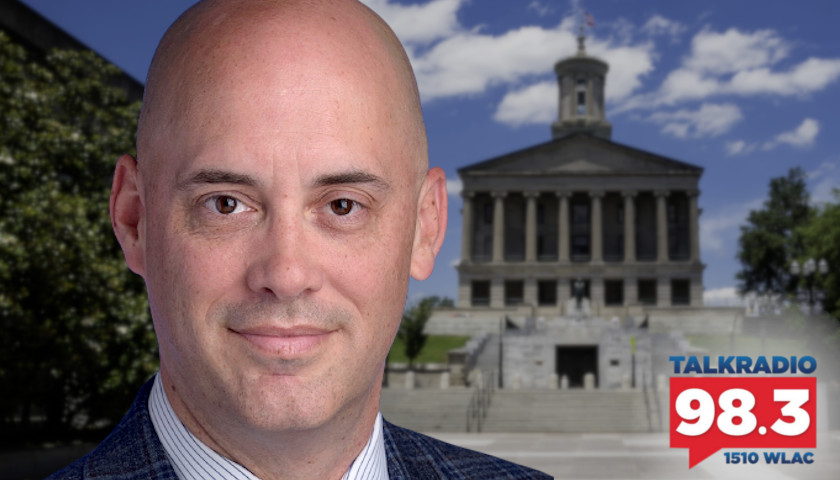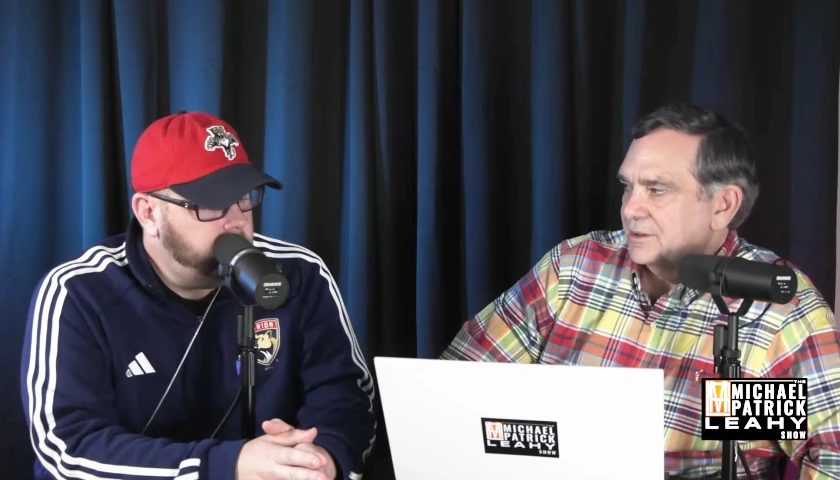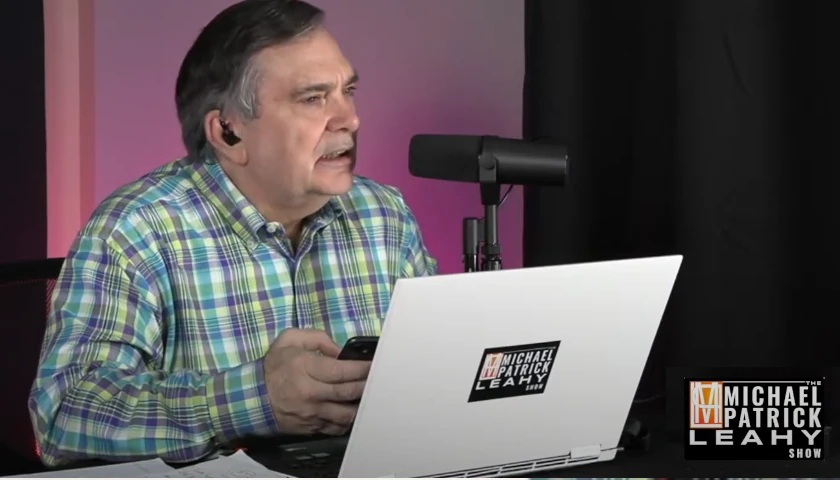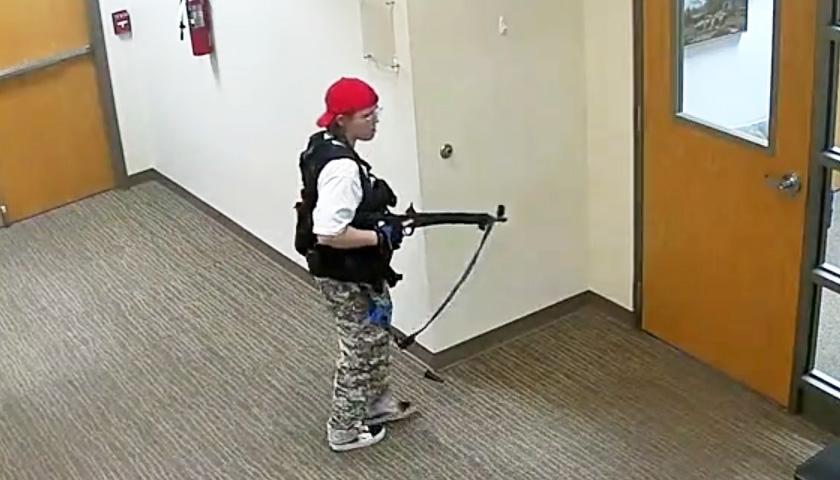Live from Music Row Wednesday morning on The Tennessee Star Report with Michael Patrick Leahy – broadcast on Nashville’s Talk Radio 98.3 and 1510 WLAC weekdays from 5:00 a.m. to 8:00 a.m. – host Leahy welcomed State Representative Johnny Garrett (R- District 45) to the newsmaker line to discuss top priorities for this session of the Tennessee General Assembly, the potential for adjustment to the Basic Education Program, and the implementation of ESA’s.
Leahy: We are joined on the line now by a very good friend, the state majority whip in the Tennessee House of Representatives. A state representative from Goodlettsville, Johnny Garrett. Good morning. State Representative Garrett.
Garrett: Good morning! How are you today day?
Leahy: I’m trying to see when the Nashville Stars will be applying for that Major League franchise. You and I had lunch with John Loar there about a year ago, and he was very enthusiastic about it. Good project. You’ve been involved in Little League in Goodlettsville for some time, haven’t you?
Garrett: I have been since my son was four years old, and of course, I played there when I was young all the way through my 15-year-old season. So baseball is kind of my thing.
And I would absolutely love to see the Nashville Stars have a Major League program here. That would just add one more thing to do right in Nashville.
Leahy: So many great things to do here in Nashville. Speaking of things to do, the Tennessee General Assembly is in session. You’ve got a big job up there. You are the majority whip. What are the big top three priorities for the rest of this session?
Garrett: Right now we just went through and passed on both sides of the House and the state Senate our redistricting plan. that has been the focus, I would say, over the past few months, even though that was done early in the session.
Obviously, folks that want to run for office, you have to get the petitions ready. And so that has been the number one focus. We think we got a good constitutional plan for our lines coming up in the 2022 season.
That’s been sort of priority one here now. I would say our next couple of priorities is to make sure we get a good budget for the state of Tennessee.
That we spend people’s tax dollars wisely with the least effect on their pocketbooks as much as possible. And, of course, some of the buzz right now we’re looking at the BEP, the funding mechanism, on how we fund our schools.
That’s a 20 or 30-year-old system formula, so to speak. The governor’s office is making a priority on how that funding takes a piece.
I’m going to look forward to see how that kind of moves forward and see what their response is on how they’re going to change that formula for our kiddos across the state of Tennessee.
Leahy: BEP stands for Basic Education Plan. I always forget what the P stands for.
Garrett: It’s either plan or program. Well now I’m thinking it’s either plan or program. It might be a program. I think it’s the Basic Education Program or Basic Education Plan.
Leahy: It’s a program. You are correct, sir.
Garrett: Goes a whole lot more than just the basics we provide. And I think that’s part of what the government should be in the business is providing that baseline for folks.
And then they can decide based upon that local education spot on what they want to do more than that. And so I think they’re just taking a look at that, since it’s a formula that’s three decades old to see how can we tweak it to make it better.
Leahy: And very complicated. It’s about how much state money goes to each of the I guess there’s 140. So they call them local education agencies.
One per county and then some special districts. A very complicated formula. Has the governor set forward a bill that defines that new formula?
Garrett: I believe there will be. I believe the governor’s administration right now is speaking to various different members to sort of brief them on what that legislation is going to look like. And so I have not seen it yet.
I don’t know the details. That’s why I’m very interested to see how that’s going to shape up over the next couple of weeks on what their plans are and see how from our position, we can make it better or say, hey, you may not want to go this route. What about this? We’re kind of in that process right now.
Leahy: My reaction to that is sort of is this has been, I think, for some time a priority of the Lee administration. They’ve held, I don’t know, eight or 10 town hall meetings since I think, September or so around the state to get input on it.
I’m a little surprised that they didn’t have a bill ready at the start of the session. It gives, I think, legislators less time to review and consider whatever is being proposed. But do you have the same concern, or do these things evolve?
Garrett: No, that’s typical. There could have been a bill that we received maybe in December, early-late November, but that is sort of the framework. And a lot of our bills, when you read them for the first time, you have so many questions on this or that.
Then it takes us getting down here and having these meetings that they have with just about every legislature they can down here to kind of explain what that process is.
And then, as you know, even though the bill may be filed, I think our deadline is coming up next week as it travels through the committee system, it could be amended, changed, etc., and look a lot different than what it started out to be once it’s passed. If it gets passed. I think that’s just kind of where we are.
Leahy: What I’ve heard is that the administration is interested in tying funding to the student, but there are no specifics yet on that. I’ve also heard at these town halls that a lot of the people who were speaking there were teachers.
And the big message there was to spend more money on schools without necessarily tying it to the students. Do you think we’re going to see a funding formula that’s tied directly to students and almost being a bit of an educational savings account or a voucher-type program?
Garrett: I would say there’s going to be a thought process that the funds need to either follow the student or say that parents have more choice. When you live in a certain community, you are subject to whatever zip code you are in and what school you’re going to.
What if that school doesn’t fit. Those decisions, in my opinion, should be the parents’ decision on where their kids might excel the best. And that may not be the school right down the road from you because that’s where you’re zoned for.
I think there’s an idea being floated around. I don’t know if it’s got all the kinks worked out as we speak today, but they want the funding to follow the child on where the parents believe is the best place for that child to be placed.
Now where all the parameters go, the details, the Devil’s in the details, so to speak, when it comes to legislation. That’s what we’re kind of going through right now to see if that’s even plausible and doable.
But I know that’s a goal to give parents more of a choice as it relates to their children’s education. The parents overall should be in control.
Leahy: How much of what you’re going to be looking at in that bill is going to be influenced by the pending Tennessee Supreme Court decision on a previous law passed by the Tennessee General Assembly, which provided, in essence, ESAs or vouchers to failing school districts I guess in what Shelby and Davidson Counties that have been contested and is now under consideration before the Tennessee Supreme Court.
Do you have an idea of when that decision will be handed down? And what impact might that have on the thinking of the members of the Tennessee General Assembly?
Garrett: As you may know, we’ve had a Supreme Court Justice in Tennessee pass away recently, and the Chief Justice Supreme Court has the authority to appoint sort of an interim justice to hear a particular case.
And they’re actually going to be re-hearing these arguments on that particular case regarding ESA’s. I believe next. Now we’ll have a panel of five justices, which is what our Tennessee Supreme Court has judges-wise.
They’re going to re-hear the arguments on the ESA legislation that was started in the trial court. And so we should have, I would think, some sort of decision on that over the next couple of months.
Listen to the full interview here:
– – –
Tune in weekdays from 5:00 – 8:00 a.m. to The Tennessee Star Report with Michael Patrick Leahy on Talk Radio 98.3 FM WLAC 1510. Listen online at iHeart Radio.





